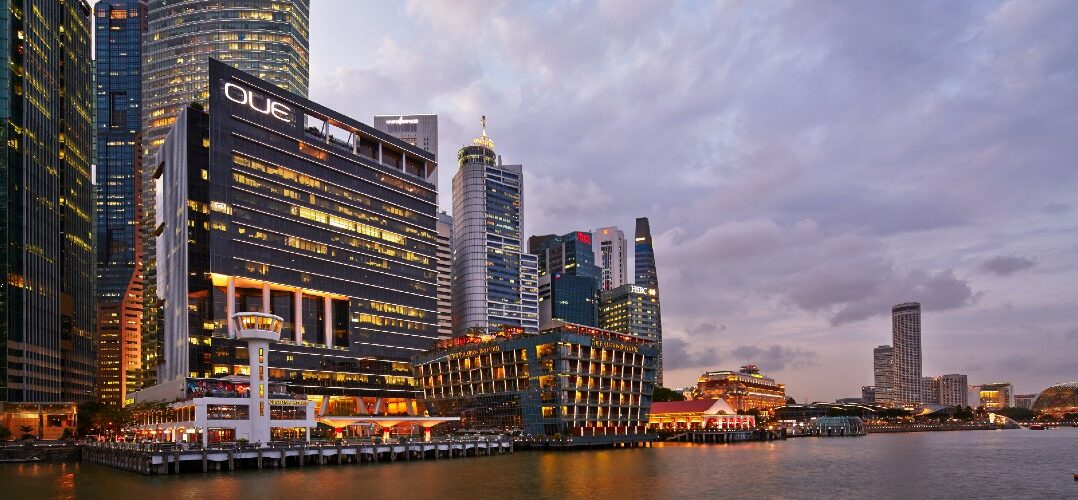The 21st century is seen as the Asian Century, and as such the Asia-Pacific region is becoming increasingly attractive to global investors, including to the world’s largest real estate investor, Allianz Real Estate, which just this month announced two new acquisitions in the region.
“Despite the COVID-19 crisis, our business in Asia Pacific has grown from strength to strength,” said Rushabh Desai, Asia-Pacific CEO of Allianz Real Estate at the close of last year.
Over the first nine months of 2020, Allianz’s Asia-Pacific portfolio grew by more than 16%, to reach €6.4bn of equity exposure.

Rushabh Desai, Asia-Pacific CEO, Allianz Real Estate
Regarding the performance of the portfolio, Desai said that Allianz had been able to continue operations over the Covid lockdowns given that markets in the region had re-opened at varied paces. “Our occupancy and rental collections have reverted to pre-COVID levels, which positions us well for the future,” he added.
Allianz Real Estate, the property arm of the Allianz German insurance group, is now looking to expand the Asia-Pacific allocation of its global real estate portfolio to 10-15% over the next five years.
2020 also saw the geographical expansion of its regional presence with the opening of two new branch offices, in Shanghai and Tokyo, in addition to its regional head office in Singapore.
Allianz set to expand third-party investment management
Not only is Allianz looking to expand its Asia-Pacific allocation in real estate over the next five years, but also to build on the firm’s third-party investment management business.
In June 2020, Allianz launched AREAP CORE I, its first third-party equity fund. The aim of this US$2.3bn joint venture investment platform with the National Pension Service of Korea, is to build a “diversified core portfolio of high-quality properties” across the Asia-Pacific region.
The fund, with an investment capacity of over US$4.6bn, will focus on Japan, Australia, Singapore, Hong Kong and China, seeking core investment opportunities across office, logistics, multi-family and student housing sectors, said Allianz.
Just this month, Allianz announced two new acquisitions made on behalf of the fund. The first was a 90% stake in a 662,000 sq ft grade-A business park office property in Zhangjiang Hi-Tech Park, Shanghai, which was followed by the announcement last week of a definitive agreement to acquire a 50% stake in OUE Bayfront in Singapore for around SGD634m (around €395m), reflecting a passing yield of 3.6%.
OUE Bayfront is a landmark commercial building strategically located between the Raffles Place and Marina Bay precincts, and directly overlooking Marina Bay. It offers a total net lettable area of 400,000 sq ft.
The “invest alongside Allianz” concept has been very well received by institutional investors, says Allianz. This has led to the successful raising of a further US$0.2bn of third-party capital from “another like-minded institutional investor” for a co-investment sleeve to invest in core Japanese residential, the firm adds.
Allianz looks to expand Asia-Pacific allocation
With a total of 44 investments across eight markets (Japan, Australia, Singapore, South Korea, Hong Kong, China, India and Southeast Asia), as of the end of last year, the Allianz portfolio is split into: logistics 30%; offices 27%; residential 9%; retail 6%; and other sectors 28%.
With core assets tending towards being “fully priced”, institutional investors are now starting to turn to a ‘manage-to-hold’ strategy, said Desai, with future-proofing as a key differentiating factor.
Core assets seem to be fully priced, thereby ‘manage-to-hold’ plays are gaining traction with institutional investors – Rushabh Desai, Allianz Real Estate
In the office sector, “micro location, city density and asset quality will be more important than ever,” added Desai.
Beds & sheds at the top of the transaction list in 2020
Transactions realised by Allianz in the first three quarters of 2020 in Asia Pacific include the acquisition of three key ‘beds & sheds’ portfolios:
- A portfolio of multi-family residential assets in Tokyo for9bn (around €270m) on behalf of AREAP CORE 1. All the assets are in Tokyo 23 ward, and all within 10 minutes of a subway station. This follows the acquisition of an 11-asset portfolio in May 2020 and a €1.1bn multi-family portfolio, with 82 assets, in 2019.
- Prime student housing assets in Melbourne for AUD460m (around €293m). This follows the setting-up in 2018 of a joint venture fund with local specialist owner & operator Scape Australia to target purpose-built student accommodation.
- Six ALDI distribution centres for AUD930m (around €593m) along the eastern seaboard of Australia via a 50:50 joint venture with Australian property fund manager Charter Hall.
Global issues reflected in regional Asia Pacific markets
Catching up with Allianz Real Estate’s Asia Pacific team at the start of 2021, MIIPM World asked about the key macro changes affecting real estate in Asia Pacific over the last 12 months. Desai highlighted:
- The possibility of recurring waves of Covid infection causing frequent disruptions, and in turn resulting in uneven recovery across geographies and sectors.
- Competition and tension between the major world powers now permeating beyond politics, and into trade, technology and security.
- Global companies looking to reorganise their production and supply chains, and in turn leading to the review of the need for regional hubs.
- The shrinking economic pie, which could see the rise of protectionism.
- The possibility of remote working further changing the landscape of demand for new jobs.
The appeal of Asia Pacific for institutional investors
Allianz’s investment strategy in Asia Pacific is pinned to the main macro real estate trends in the region, all accelerated by Covid. They include factors such as:
- Urbanization, as young people continue to migrate to cities in search of work, education and healthcare.
- The rapid adoption of digital technology.
- Structural shifts in e-tailing.
- High infrastructure spending. (Earlier this month, US investment group KKR & Co announced that it had closed its first US$3.9bn fund focused on infrastructural investment across Asia Pacific.)
- Interest rates staying lower for longer.
With regards to the acquisition of 50% of OUE Bayfront in Singapore, Desai commented: “The Singaporean government has managed the COVID-19 pandemic extremely well.
“Over the medium to long term, the investment prospects of Singapore offices will remain favourable, as the market is well positioned from a supply, occupancy cost, market transparency, technology and business environment perspective to cushion any potential adverse impact of the near-term market volatility.”
Asia Pacific offers an ideal balance between developed economies and growth economies– Rushabh Desai, Allianz Real Estate
Especially in the more emerging markets of Asia, even though high growth often comes with structural challenges, Desai sums up the opportunities in the region saying: “Asia Pacific offers an ideal balance between developed economies and growth economies.”
“Our constant endeavour is to navigate through challenges to secure attractive, long-term, risk-adjusted returns for our investors by building a diversified portfolio to take advantage of individual country and sector cycles.”
François Trausch, Global CEO & CIO of Allianz Real Estate, is Chair of the Jury of the MIPIM Asia Awards 2020. The gold, silver & bronze winners of the MIPIM Asia Awards 2020 are being announced at the MIPIM Asia Forum, held in Hong Kong and online on 26 January 2021.
Top Image: OUE commercial REIT



